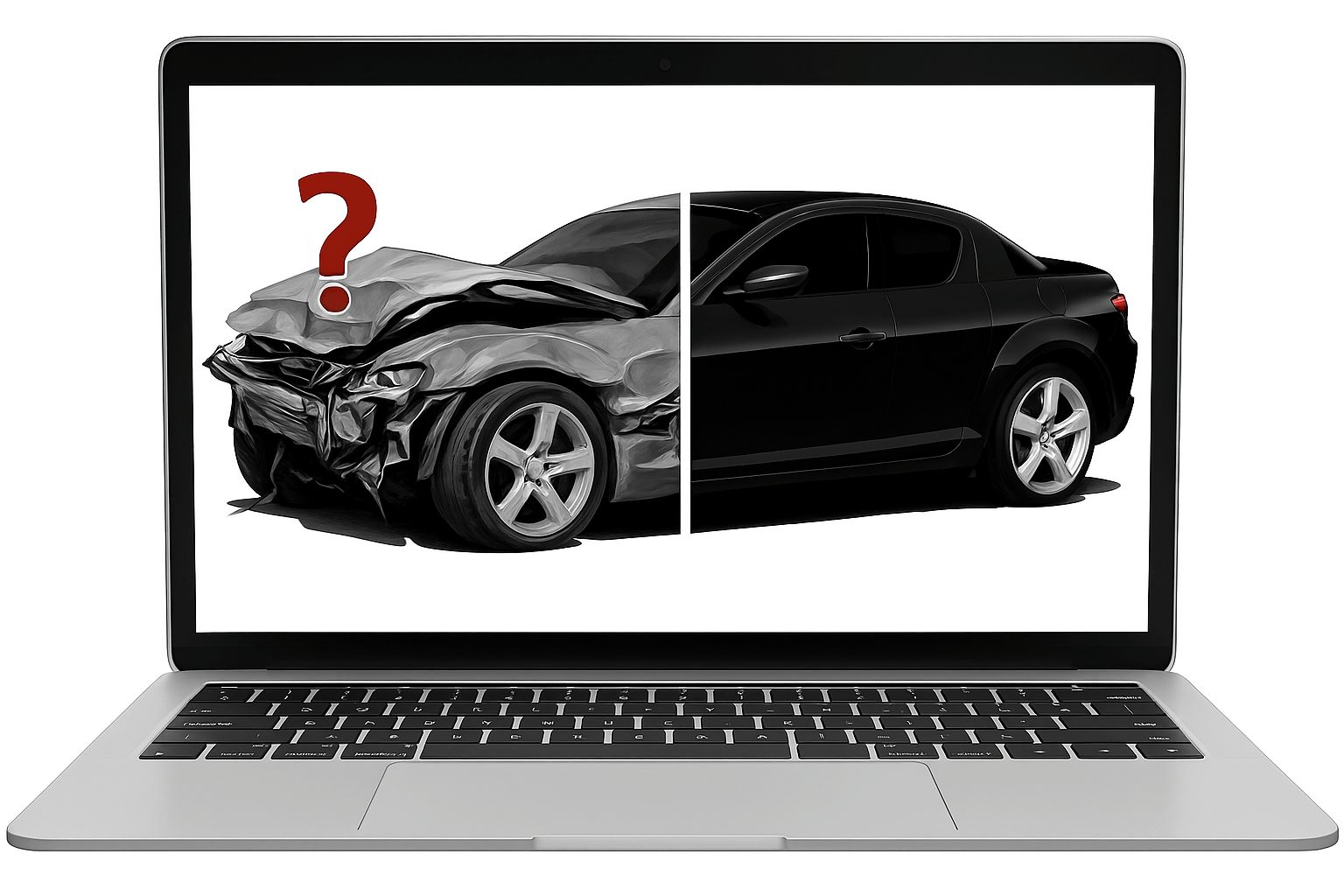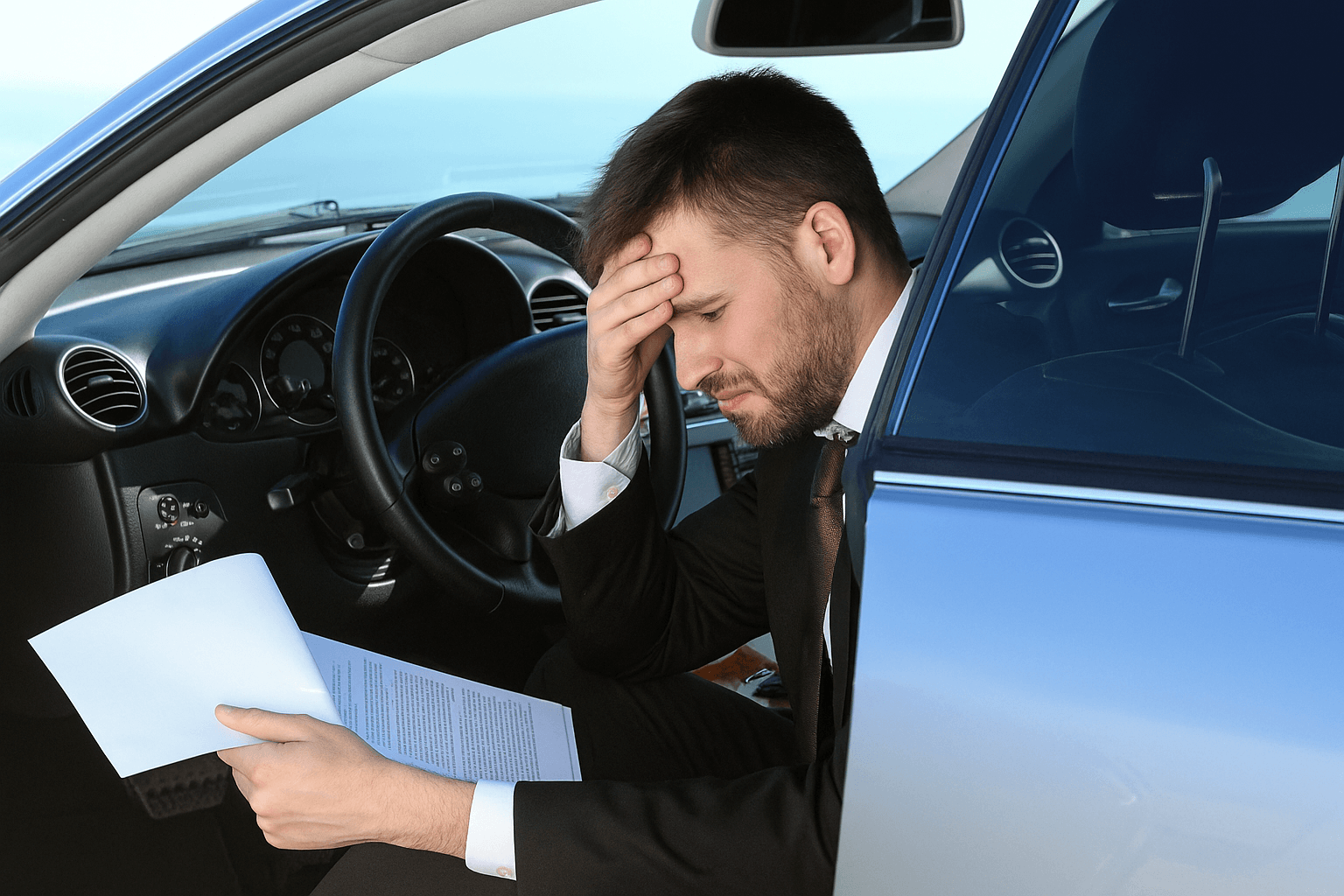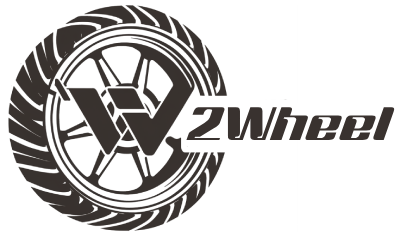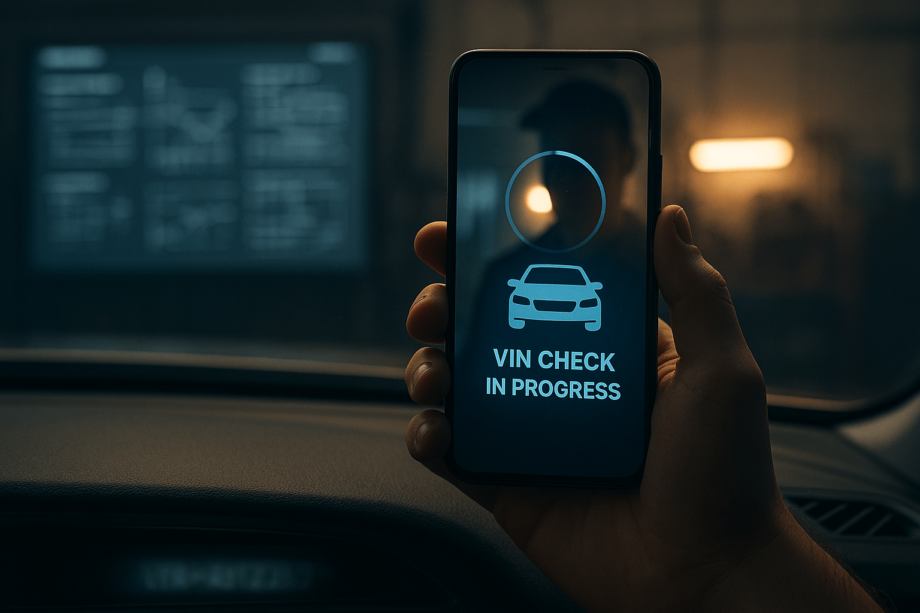
To run a free VIN check in the U.S., use official tools provided by government agencies and insurance databases. These services let you verify if a vehicle has been reported stolen, marked as salvage or rebuilt, or affected by an open safety recall, at no cost. A free VIN lookup can quickly flag major issues and give you peace of mind before you proceed further. Just enter the 17-digit VIN on two or more trusted platforms to cross-check results and catch hidden risks before buying.
Why You Should Always Check a VIN Before Buying
Before buying any used car, run at least one VIN Check. The VIN, or vehicle identification number, links a car’s identity to records across insurers and states. A VIN check helps identify title brands, theft, and flood damage quickly. It also confirms the exact model and trim, so you can compare market dynamics fairly.
- Verify title status, liens, salvage or rebuilt markers.
- Confirm mileage trends and key service entries.
- Match the plates in the common locations to the paperwork.
- Check open recalls and safety defects.
According to car market information, shoppers who pull a report reduce post-purchase complaints by more than 20%.
What Information Can You Get with a Free VIN Check?

A legit free VIN check won’t reveal every accident, but it provides essential information to screen a vehicle fast. Most tools show safety campaigns, basic specs, and theft or total-loss flags. Together, these results guide buying decisions and help you decide if a full report is worth it. Running two services increases coverage and helps you find inconsistencies and find information you can act on.
| Data Type | What You Get | Why It Matters |
| Basic ID | Year, make, model, engine | Confirms you’re reviewing the right car |
| Title Flags | Salvage, junk, rebuilt | Affects value, insurance, and resale |
| Theft/Total Loss | Open theft or insurer total-loss | Walk away from risky sales |
| Recalls | Open or fixed recalls | Free dealer fixes protect safety |
| Specs & Features | Trim, options, equipment | Compare price versus features |
| Registration Trail | States and event date | Pinpoints title washing patterns |
| Odometer Signals | Mileage events and gaps | Exposes rollback risk |
After severe storms in 2024, flood-related vehicle history alerts spiked in several regions (Florida, North Carolina, and some others).
Top 5 Best Free VIN Check Sites
No single free VIN check covers everything. Use two or three free tools from this list, then decide if purchasing a complete report makes sense for your next car. Each site offers a totally free VIN check tier that covers recalls and identity basics. Pairing two services increases your chances of catching problems early by getting an accurate vehicle history report.
NICB VINCheck
NICB’s service screens theft and total-loss records from participating insurers. Enter the code, and the service returns quick results you can review curbside. It’s a good first pass before spending the budget on a deeper history report.
NHTSA VIN Decoder
The NHTSA decoder focuses on safety and recall information. Enter a VIN to check active recalls, manufacturing details, and defect investigations by model and year. Because it’s an official VIN check, it’s worth running on every vehicle you’re considering.
EpicVIN’s Free VIN Decoder
EpicVIN’s free VIN check provides vehicle specs, recall information, and basic title data. It can identify market value estimates and pricing information. The service’s free VIN lookup often offers an affordable upgrade to a detailed report, and the layout is easy to analyze with a seller on your phone. It’s a strong way to find issues early.
VinFreeCheck’s Free VIN Decoder
VinFreeCheck is a straightforward service for fast identity and spec confirmation. It verifies make, model, and engine codes and can point you to deeper vehicle history sources. It’s a handy first screen when buying from a private seller and a good way to find mismatches.
VinCheckUp’s Free VIN Lookup
VinCheckUp offers a preview of records and a path to a fuller report. Use this service to double-check what others missed. Its VIN lookup is a smart second opinion when you’re narrowing choices, and it can provide quick recall info.
Combining at least two checks catches far more issues than a single pass.
How to Check a VIN for Free Step-by-Step
Complete a VIN check in minutes while standing by the vehicle. Bring a phone, compare physical labels, and save screenshots of each report for later analysis. If anything seems off, pause buying until you investigate further. These steps help you find problems and choose the safest path.
- Locate the code on the dashboard tag, the door-jamb label, and the registration.
- Enter the number into NICB and NHTSA, then add one commercial service.
- Check car recalls, title flags, theft status, year, model, and equipment for consistency.
- Compare mileage and the period between services.
- Photograph labels and store notes inside your phone’s folder for the car.
- If the vehicle passes, order a complete report before buying.
Free vs Paid VIN Checks: What’s the Difference?
A free VIN check is perfect for quick screening, but it has limits. Free tools focus on identification, recalls, and major flags. A paid option aggregates more sources, auction images, and mileage analytics to strengthen pricing decisions. Free VIN checks help you find obvious problems; a paid version helps you negotiate costs and protect long-term vehicle performance.
| Aspect | Free VIN check | Paid report |
| Cost | $0 | Fee varies by service |
| Coverage | ID, recalls, theft/total loss | Accidents, owners, transfer timeline, auction photos |
| Odometer | Basic events | Trends and rollback analysis |
| Title Brands | Present flags only | Cross-state depth and older history |
| Market Information | Minimal | Sales comps and value trends |
| Export/Sharing | Limited | Full downloadable file and shareable link |
When Is a Paid Report Worth It?
Upgrade when the car is pricey, the vehicle description is vague, you spot timeline gaps, or you plan to finance. Apply to a full vehicle history report when documentation will protect value at resale, and answer questions that a basic service cannot.
VIN Check Mistakes That Can Cost You Thousands
Don’t rely on one VIN check, ignore mismatched labels, or skip recall verification. Always run multiple services, compare mileage, and confirm plates match paperwork. When in doubt, run another VIN check—there are easy options to verify claims.
Ignoring Title Washing Red Flags

Title washing moves a damaged vehicle to another state to hide its brand. A careful VIN check compares state changes near a repair date and watches for fast retitling. Check addresses against a driver’s license, and inspect labels closely.
| Red Flag | What to Check | Why It Matters |
| Sudden state shift | Registration vs damage timeline | Indicates potential washing |
| Fast resale | Short time between owners | Can hide salvage history |
| Missing labels | Torn door-jamb sticker or dashboard plate | Suggests plate swap |
| Urgent seller | “Cash today” pressure | Step back and re-check everything |
Overlooking Odometer Rollback or Mileage Inconsistencies
Rollback inflates price and crushes resale value. Use several VIN check services to compare mileage snapshots from inspections, maintenance, and emissions tests. If numbers drop between events or stall for years, renegotiate or walk away from the car. These VIN number checks provide leverage when you need it.
Misinterpreting “No Accidents Reported” as “Never Damaged”

“No accidents reported” doesn’t mean no damage ever occurred. Minor repairs may never reach a database. Inspect panel gaps, paint texture, and fasteners inside the trunk, and ask for invoices or photos from previous work.
- Check the hood, door, and bumper alignment carefully.
- Look for overspray or masking lines at edges.
- Examine uneven tire wear and rotor lips.
- Ask the seller for estimates, parts lists, and shop photos.
Summary
A well-planned VIN check helps you identify risk, confirm specs, and safeguard value before purchasing a used car. Run two or three services. Compare mileage and then order a concise paid file with detailed vehicle history. Verify the VIN number in common vehicle locations. These simple steps help you find problems early, ask better questions, and save money over the life of the car.
Can I Check a VIN for Free If the Car Has Been Rebuilt?
Yes. A free VIN check can flag rebuilt, salvage, or junk titles and open recalls. Verify that VIN labels on the vehicle’s parts match the registration. Compare entries across separate services before purchasing in any country.
Can I Run a VIN Check for a Car with Only a Partial VIN Visible?
No, try other locations if a VIN plate is damaged. Check the windshield tag, the door-jamb sticker, and the registration document. If still partial, a dealer can use the plate or model details. They help verify the complete vehicle identification number and provide guidance.
How to Catch a Cloned VIN on a Used Vehicle?
Cloning copies a code from a similar car onto a different vehicle. Compare multiple plates and barcode stickers, and make sure trim and equipment match the decoded specs.
Can Someone Steal My Car Info If I Post the VIN Online?
No. Posting a code alone won’t let someone steal your car. Still, never share bank data or personal details, and don’t post personal full records publicly. Mask plate numbers in photos and keep documents secure; avoid sharing a driver’s address with unknown parties.
Do Vehicle History Reports Include Data About a Car’s Previous Owners?
No. Paid VIN check services typically show the number of owners and timelines, not full names. Privacy rules protect a driver’s identity. Even without names, ownership history helps evaluate usage, maintenance, and market trends when you purchase or sell a used car.

